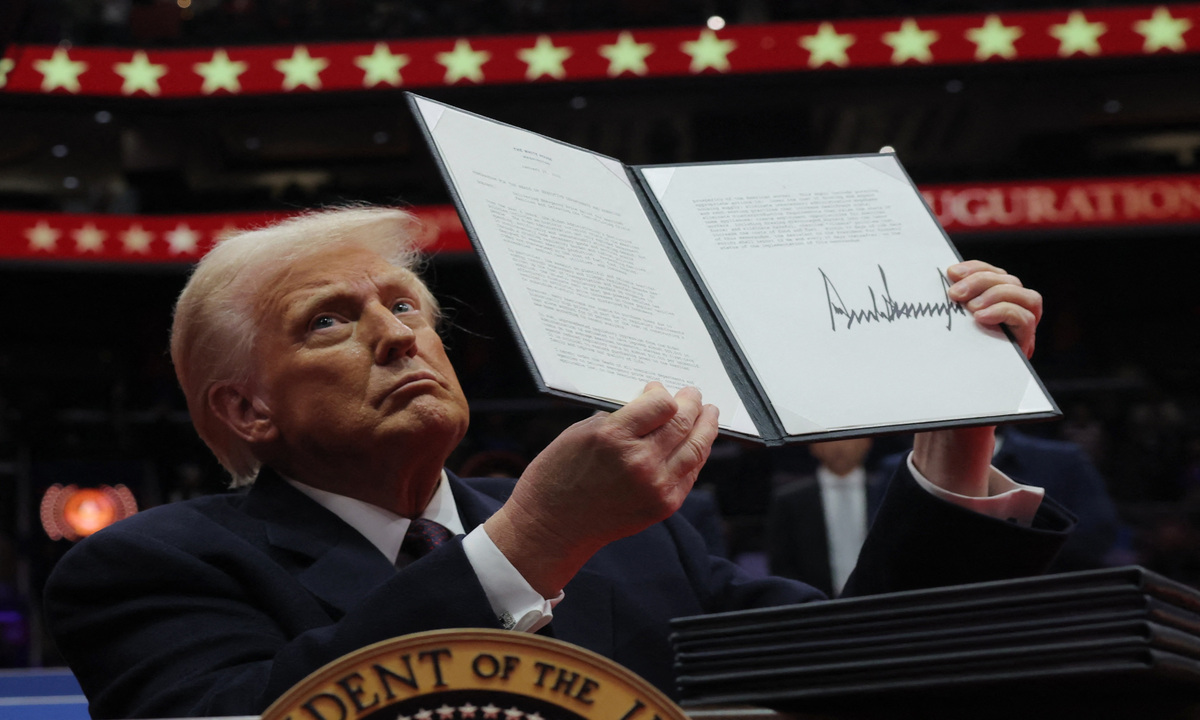President Donald Trump’s recent executive orders requiring federal employees to return to in-person work are expected to significantly impact Georgia’s federal workforce. The directives aim to phase out remote work arrangements and reduce the size of the federal workforce, targeting what the administration refers to as “rogue bureaucrats and career politicians.”
With over 200,000 federal employees, including military personnel, Georgia is home to one of the nation’s largest federal workforces. These changes will affect workers in critical agencies like the IRS, EPA, and CDC, as well as downtown Atlanta’s ongoing economic development.
The Executive Orders and What They Mean
Trump’s orders mandate that federal agency heads revise their policies to ensure eligible employees return to their respective offices full-time. While exceptions can be made for those with disabilities, qualifying medical conditions, or other compelling reasons, these must be certified by both the agency head and the employee’s supervisor.
Another executive order reinstates Schedule F, a controversial policy that removes employment protections for certain federal civil servants. This change makes it easier to terminate employees deemed disloyal to the administration, further underscoring the administration’s goal of shrinking the federal workforce.

Why This Matters to Georgia
Georgia, and particularly metro Atlanta, is home to a large number of federal employees working in essential agencies, including:
IRS: Four taxpayer assistance centers serve the area.
CDC: The Centers for Disease Control and Prevention employs thousands in Atlanta.
EPA: Environmental Protection Agency officials oversee critical environmental regulations.
Judiciary: Federal judges, court staff, and other legal professionals operate in downtown Atlanta.
Postal Workers: U.S. Postal Service employees are spread across the state.
Air Traffic Controllers: Managing air traffic at Atlanta’s Hartsfield-Jackson Airport, one of the world’s busiest airports.
These employees are not only vital to federal operations but also play a significant role in supporting local businesses. The influx of workers returning to downtown Atlanta could boost nearby establishments, including restaurants, coffee shops, and retail stores, as part of the area’s multibillion-dollar development projects like Centennial Yards.
Georgia’s Federal Workforce in Numbers
As of 2023, roughly 211,000 federal employees worked in Georgia, including military personnel.
Approximately 16.2% of these employees worked remotely, a rate higher than the national average of 12.7%.
Georgia ranks sixth in the country for the highest percentage of remote federal workers.
What Experts Are Saying
Trump’s orders have sparked mixed reactions. Proponents of the return-to-office policy argue that reducing remote work will improve efficiency and accountability in federal agencies. Critics, however, warn that the move could lead to workforce instability.
“Requiring federal employees to come to the office five days a week would result in a wave of voluntary terminations that we welcome,” Elon Musk, head of the newly formed Department of Government Efficiency, wrote in a November op-ed.
Economic Impacts on Atlanta
The changes come as downtown Atlanta undergoes a period of economic revitalization. Projects like Centennial Yards, along with new businesses such as Spiller Park Coffee, stand to benefit from the return of thousands of federal employees to their offices at locations like the Sam Nunn Federal Center and Richard B. Russell Federal Building.
This potential customer base could boost local businesses and contribute to the area’s development. However, the success of these projects may depend on how well employees adapt to the new policies and whether the workforce remains stable.
Concerns Among Federal Workers
For some employees, the transition from remote work to full-time in-person attendance raises concerns about work-life balance, commuting challenges, and health risks. Federal workers in Georgia have expressed uncertainty about how the changes will affect their day-to-day lives.
Additionally, the reinstatement of Schedule F has raised alarm among civil servants, as it removes employment protections for certain positions, making it easier to fire employees based on perceived loyalty rather than performance.
Looking Ahead
Trump’s orders signal a shift in how the federal workforce operates, with implications not just for employees but also for local economies and public services. While supporters believe the measures will streamline government operations, critics argue they may undermine employee morale and retention.
As agency heads implement these directives, it remains to be seen how they will impact Georgia’s federal workforce and the broader community.
Conclusion
The return-to-office mandate and workforce reductions are set to reshape the landscape for federal employees in Georgia. While the move may provide economic opportunities for downtown Atlanta, it also raises questions about employee well-being and agency efficiency.
With federal employees making up a significant part of Georgia’s workforce, the state will undoubtedly feel the effects of these changes in the months to come.
Disclaimer—Our team has checked this article to ensure its accuracy and eliminate any misinformation. We are committed to providing clear and reliable information for our readers.




